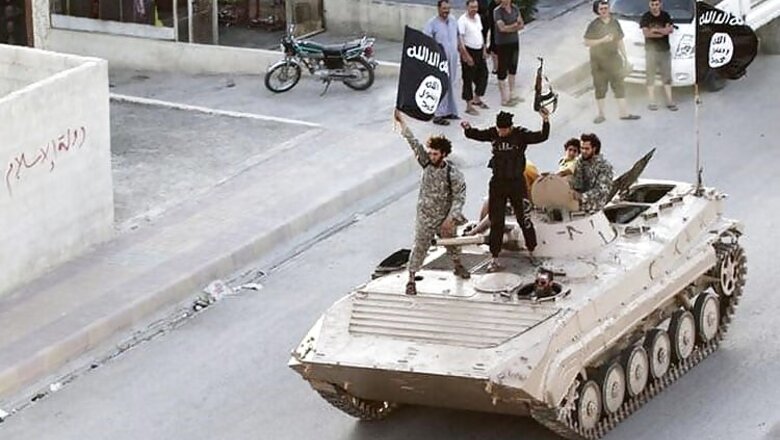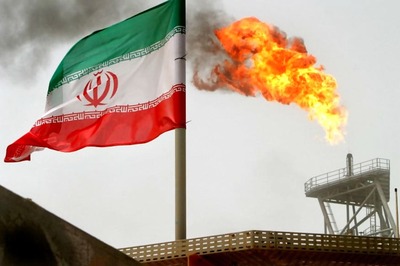
views
Washington: Cash-strapped Islamic State has lost almost a quarter of its territory in the last 15 months and the dreaded terror group is increasingly isolated and on the decline, according to a new study.
Data published by IHS Jane's 360 has shown that since January 2015 the militant group has lost 22% of its territory in Iraq and Syria and 8% of the losses were in the past three months.
"The tide of the war is turning against the Islamic State. Between January 1 and December 15, 2015, the Islamic State lost control of 14% of its territory. New analysis indicates that in the last 3 months, the Islamic State has lost a further 8% of its territory," the report said.
"In 2016, we have seen major losses in the north-east extend south towards Raqqa and Deir al-Zour as the mixed- sectarian Kurdish and Sunni Syrian Democratic Forces advance under the cover of US and Russian airstrikes," it said.
The monitoring group attributes these defeats to a changing strategic landscape.
The loss of the pivotal Syrian border crossing of Tal Abyad took out one of the Islamic State's chief access points for smuggling in weapons, materiel and new fighters. Tighter Turkish border controls also have thinned out cash flows, as well as the numbers of foreign recruits seeking to join the group, the The Washington Post reported citing the report.
Airstrikes by the US-led campaign and an ongoing Russian mission in Syria have pinned the Islamic State back, it said. "Isolation and further military defeats will make it harder for the Islamic State to attract new recruits to Syria from the pool of foreign jihadis," writes Columb Strack, a Middle East analyst at IHS.
"The Islamic State is increasingly isolated, and being perceived as in decline. This plays into the hands of its main rival, al-Qaeda's Jabhat al Nusra, which despite sharing the same ultimate goal of establishing an Islamic caliphate, has criticised the Islamic State for prematurely declaring it," the IHS report said.
Local smuggling channels still operate, the report said but noted that the risk of detection, and therefore the associated costs have skyrocketed.
"But the demise of the Islamic State is hardly a foregone conclusion. As a separate report from the Institute for the Study of War points out, the threat posed by the extremists is not limited by geography. Even as the group suffered defeats in Iraq and Syria, its proxies carried out brazen attacks from Jakarta to Paris and numerous other places in between," the US daily said.



















Comments
0 comment